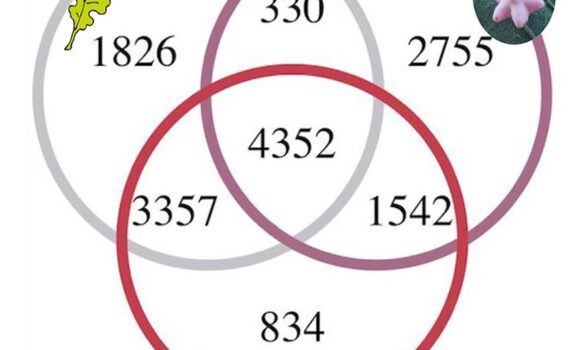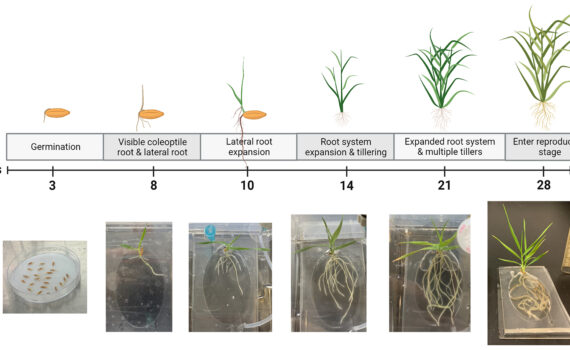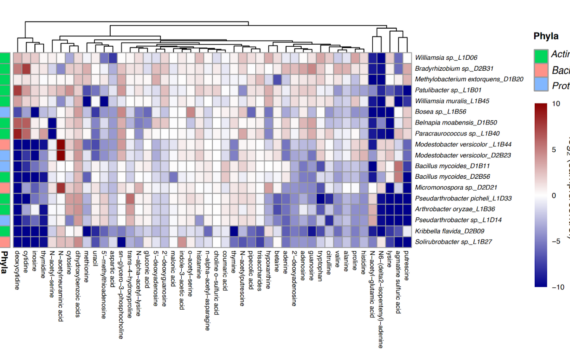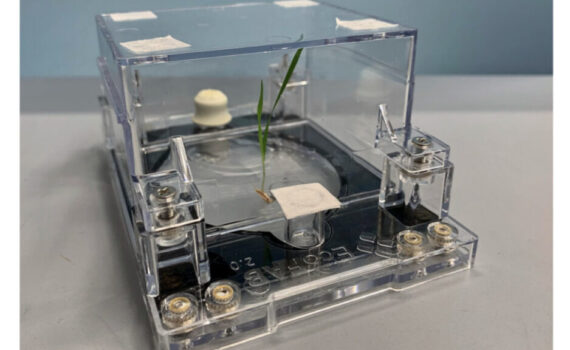The Northen Lab’s metabolomic contributions were featured in a recent episode of the Genome Insider podcast, a production of the Joint Genome Institute. In this episode, Kasey Markel and Patrick Shih (UC Berkeley and the Joint BioEnergy Institute) unfold how they began looking into cynapid wasp galls, and how they […]
News
Northen Lab researchers Vlastimil Novak, Benjamin Bowen, Katherine Louie, and Trent Northen along with collaborators at University of California Berkeley, Joint BioEnergy Institute, LBNL, and Suranaree University of Technology co-authored the paper “Cynipid wasps systematically reprogram host metabolism and restructure cell walls in developing galls”. Galls are structures created by […]
Northen Lab scientists Peter Andeer, Kateryna Zhalnina, Lauren K. Jabusch, and Trent R. Northen recently co-authored an article published in Phytobiomes Journal titled, “Impact of Inoculation Practices on Microbiota Assembly and Community Stability in a Fabricated Ecosystem.” This research aimed to assess the challenge associated with different inoculation methods and […]
Northen Lab researchers Qing Zheng, Yuntao Hu, Suzanne M. Kosina, Marc W. Van Goethem, Susannah G. Tringe, Benjamin P. Bowen, and Trent R. Northen authored the publication “Conservation of beneficial microbes between the rhizosphere and the cyanosphere”. Biological soil crusts (biocrusts) are photoautotroph dominated communities on soil surfaces that provide […]
Northen Lab researchers Vlastimil Novak, Peter Andeer, Benjamin Bowen, Yezhang Ding, Kateryna Zhalnina, Connor Tomaka, Thomas Harwood, Michelle van Winden, Amber Golini, Suzanne Kosina, and Trent Northen, are authors on a new paper recently published in Science Advances in January 2024, titled “Reproducible growth of Brachypodium in EcoFAB 2.0 reveals […]
The Northen Lab hosted multiple undergraduate student interns this summer to assist in ongoing metabolomics research at the lab. Undergraduate students conducted research alongside project scientists for 10 weeks and presented their research/findings at the end of their summer projects. We are always excited to host and mentor the next […]






